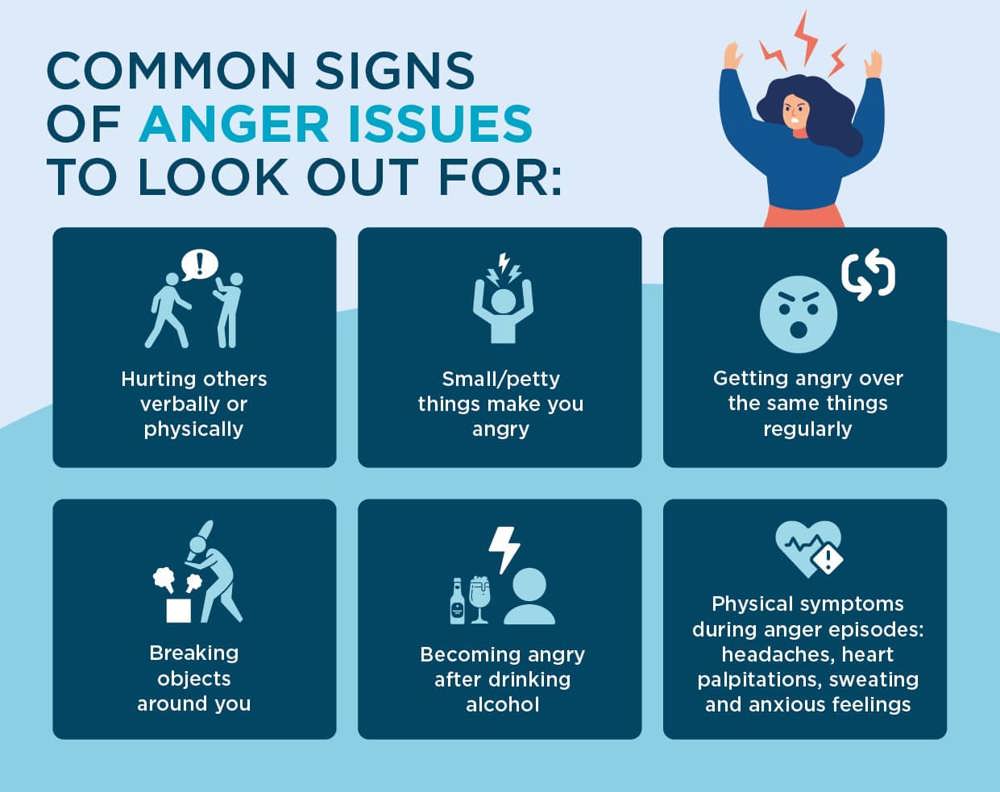What causes anger issues?
Anger can have a wide range of triggers, which can differ from person-to-person. Some of the common causes of anger problems can include:
- Being threatened or treated unfairly
- Being publicly humiliated or having your self-esteem or confidence undermined in public
- Personal problems such as financial problems or stress at work
- Past experiences
- Trauma/abuse
- Bereavement and grief
- Existing mental health conditions
Whatever the cause of your anger, it's important that people learn to exercise control before their anger becomes a bigger problem.
When you're expressing feelings of anger, whether outwardly or inwardly, it can seem as though the people and places around you are triggers of your anger. It's actually how you interpret these situations in your mind and the thinking patterns immediately afterwards that control the level of anger you feel and your response.
Some of the negative thinking patterns that can trigger symptoms of anger problems include:
Generalising
Taking a perceived negative situation and overgeneralising can bring about excessive feelings of anger. For example, you might believe that everyone disrespects you all the time after one particular event where you felt disrespected, which is likely to be far from the truth.
Rigid world view
This involves not wanting to deviate from your own ideas on the way things ‘should’ and 'shouldn’t' be. For example, if someone at work challenged your ideas on a particular project and you disagreed, it can be important to take a moment to calm your mind and take alternative opinions on board.
Jumping to conclusions
Assuming that you can anticipate the thoughts and feelings of others, which may lead you to jump to conclusions about why someone has intended to upset you or ignore your requests, without hearing their verbal explanations.
Minor irritations
Letting small annoyances or frustrations build up over time, while overlooking positive aspects of your life, can cause feelings of anger to increase. That's why it’s important to address such concerns in different ways before they get on top of you.
Blaming others
While it can be difficult to look to yourself for blame in any given situation, taking responsibility for your own actions can greatly reduce feelings of anger misplaced towards others when it wasn’t directly their fault.
Pre-existing mental health conditions
Anger can be a symptom of both anxiety and depression, as well as other mental health conditions. Anxiety can make someone angry as it can trigger our natural 'fight or flight' instinct, and as a result, someone may start acting out towards those around them as a way of protecting themselves. Whereas someone with depression may already see the world with a negative bias, ultimately leading to them feeling angry towards those around them. Anger in depression can present itself in different ways, with someone lashing out at others around them or hurting themselves.











